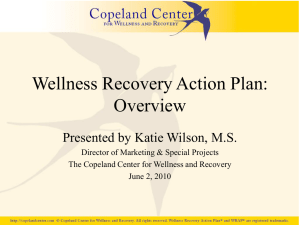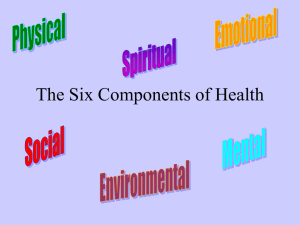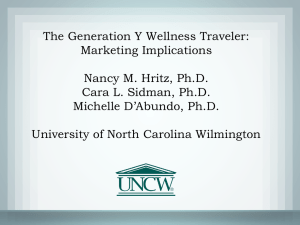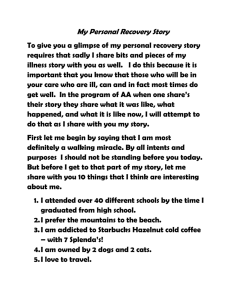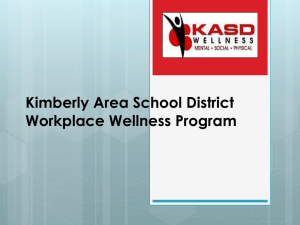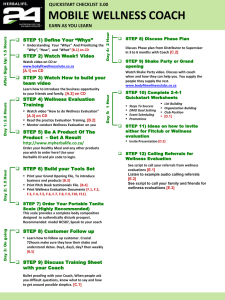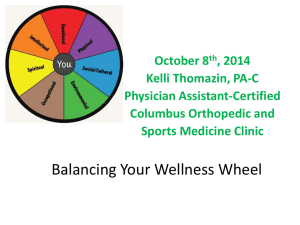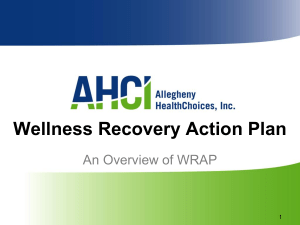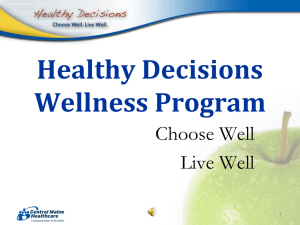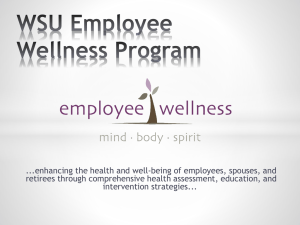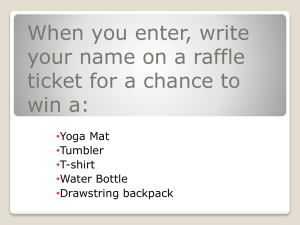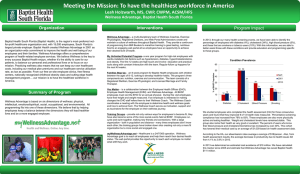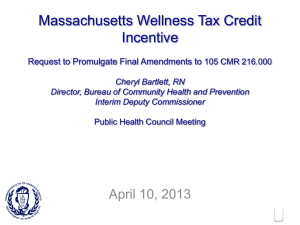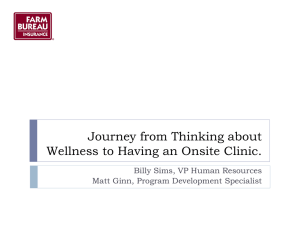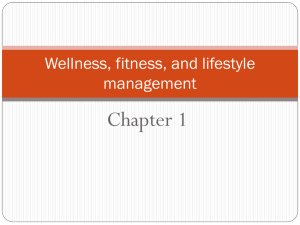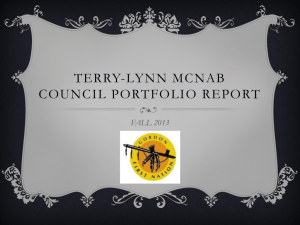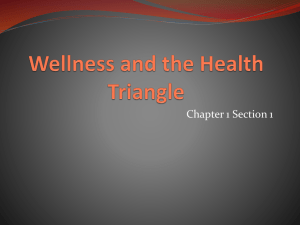Moving from `what`s wrong` to `what`s strong`
advertisement
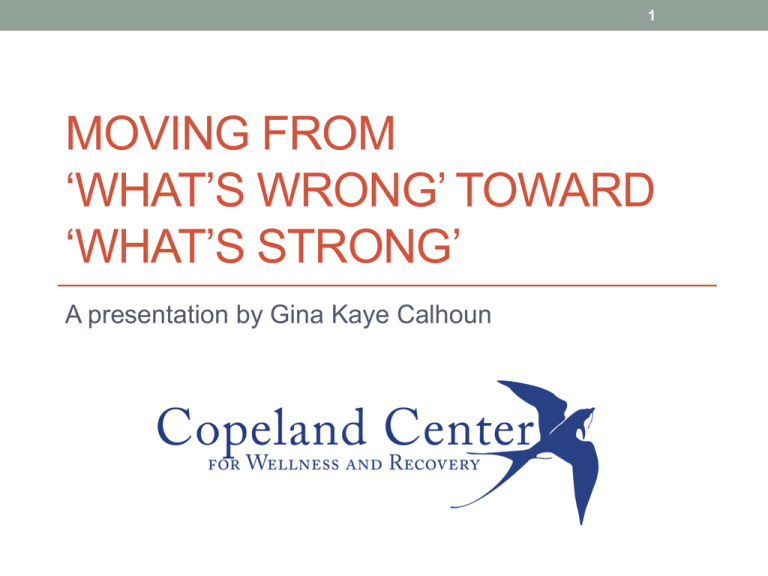
1 MOVING FROM ‘WHAT’S WRONG’ TOWARD ‘WHAT’S STRONG’ A presentation by Gina Kaye Calhoun 2 Gina’s Story Once upon a time… 3 Mental Health Recovery and WRAP® • Key Recovery Concepts • Wellness Toolbox • WRAP®: Wellness Recovery Action Plan • Recovery Topics • Values and Ethics 4 Key Recovery Concepts • Hope • Personal Responsibility • Education • Self-advocacy • Support 5 Hope I can get well and stay well for long periods of time. I can work toward and meet our goals. I can lead a happy and productive life. 6 Personal Responsibility • Willingness with intention to make choices • Knowing I have the right to make a choice 7 Education Learn so I can make good decisions about: Treatment Lifestyle Career Relationships Living Space Leisure Time All Aspects of Your Life 8 Self-Advocacy Believe in myself Know my rights Set personal goals 9 Self-Advocacy “Going for it” with courage, persistence and determination; expressing myself clearly and calmly until I get what I need for myself. 10 Support Support from family, friends and care providers Support from the community Having a feeling of connectedness Building partnerships 11 Key Concepts Wellness Toolbox WRAP® 12 Creating a Wellness Toolbox • Things I do to keep myself well • Things I do to help myself feel better 13 Creating a Vision for Wellness Begin a WRAP® by developing a Daily Maintenance Plan •How do I feel when I am well? •What do I need to do every day to stay well? •Reminder list of things I might choose to do on any day. 14 Triggers and Action Plans • Events or circumstances which may make me feel uncomfortable • Things that may make me feel worse • Identify some triggers and develop a plan • Use my wellness tools • Have a Plan A and Plan B 15 Early Warning Signs and Action Plans • Subtle signs of change • Signs that indicate things are not going well • WRAP® encourages me to pay attention and take action 16 When Things are Breaking Down and Action Plans • I may begin to feel worse, but I am still able to take action • It is important to be assertive to prevent a crisis • Plan needs to be clear with things I “must” do. 17 Crisis Plan • Proactively planning for the worst • Planning for when I am temporarily unable to make good decisions • Will help me learn and grow even in the worst of times • Is about staying in charge • Create the plan with supporters who will follow my plan 18 Crisis Planning 1. What I’m like when I’m well 2. Indicators others need to take over 3. Supporters 4. Medications 5. Treatments 6. Home, community and/or respite care 7. Hospitals or treatment facilities 8. Support from others 9. Indicators that I can resume responsibility 19 Wellness Daily Maintenance Plan Post Crisis Plan – Resuming Responsibility Trigger Wellness Tools Post Crisis Plan Learning Post Crisis Plan Support Early Warning Signs When Things are Breaking Down Crisis 20 That’s a WRAP®! For more information, please contact: www.copelandcenter.com www.mentalhealthrecovery.com
